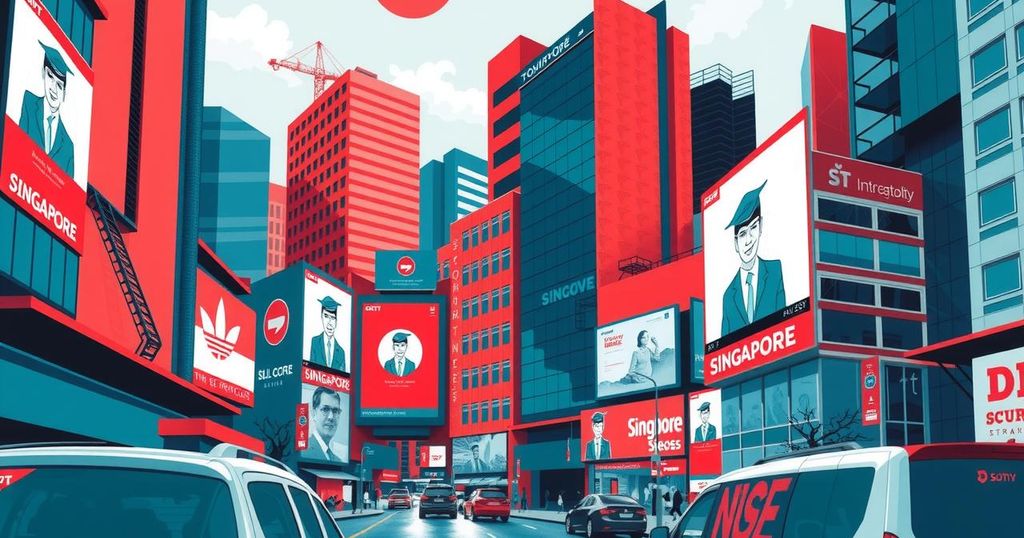Singapore Elections: Focus on Victory Margin Amidst Growing Opposition

In Singapore’s upcoming elections, the focus is shifting from the winner to the margin of victory. The ruling People’s Action Party is expected to maintain its long-standing dominance, yet rising public discontent with issues like the cost of living may boost the opposition’s presence. Political analysts predict a more competitive landscape as voters express a desire for change in governance.
As Singapore approaches its next election, much attention is focused not solely on the expected winner, the People’s Action Party (P.A.P.), but rather on the margin of victory. The P.A.P., a political fixture in the city-state since 1959, looks poised to secure another term. However, rising discontent with its policies, especially regarding the cost of living, has heightened the stakes of this electoral contest.
Similar to previous elections, Singapore’s current political climate is shaped by global turmoil. In 2020, the P.A.P. positioned itself as the steady hand needed during the COVID-19 pandemic. Today, with President Trump’s impact on global trade reverberating, the party is trying to maintain that narrative. Yet, the 2020 election saw the P.A.P. achieve its second-worst result ever, reflecting a potential shift in voter sentiment toward a more competitive political landscape.
There is a growing consensus among political analysts that the opposition is consolidating its influence in Singapore. Discontent is palpable among voters as they grapple with the P.A.P.’s handling of economic issues, particularly the skyrocketing cost of living. Rallies hosted by the main opposition party, the Workers’ Party, have witnessed enthusiastic attendance and the swift sell-out of their campaign merchandise.
Pritam Singh, the leader of the Workers’ Party, made it clear during a recent rally that despite not contesting enough seats to govern, the need for a balanced political spectrum is crucial for Singapore’s health. “When you have opposition in Parliament, your alternative voice is heard by the government,” Singh emphasized, advocating for increased civic engagement.
This election also symbolizes a crucial juncture for leadership change. Prime Minister Lawrence Wong, who assumed office last year after the long-standing leadership of Lee Hsien Loong, faces pressures from both domestic and international fronts. Wong highlighted the importance of trust and established relationships with global leaders to navigate the ongoing U.S.-China tensions, reiterating the P.A.P.’s long-standing commitment to stability and prosperity for Singapore.
Thus, the impending election may serve as a referendum on the P.A.P.’s governance, with many voters eager to signal their desire for change. By examining the margin of victory, observers are likely to gain insight into the current political sentiment in Singapore. The populace’s enthusiasm for the opposition could signify a broader call for diversity in political representation as they prepare to head to the polls.
In summary, the upcoming election in Singapore appears to be pivotal for both the ruling P.A.P. and the opposition Workers’ Party. While the P.A.P. is anticipated to retain power, the margin of victory could reveal significant shifts in public sentiment. The grassroots engagement seen at opposition rallies underscores a growing desire among voters for a more competitive political environment, reflecting deepening discontent with current policies. The stakes are high, not just for the parties involved, but for the future of Singapore’s political landscape.
Original Source: www.nytimes.com







